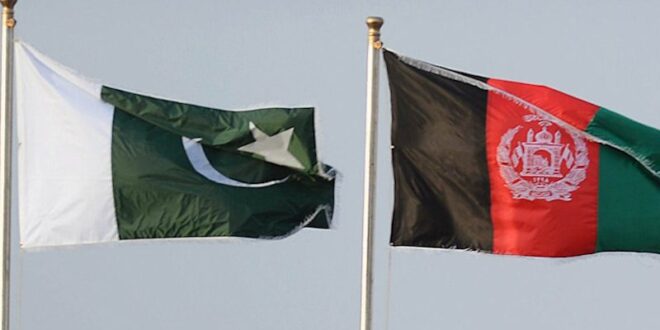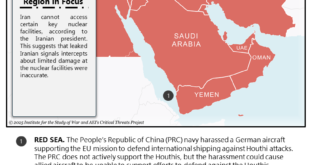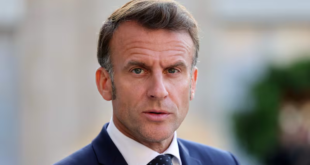On 15 August 2021, the Taliban arrived in Kabul and the Afghan President fled the country. A week earlier, the Taliban barely had half the country under their control.
Afghanistan is often called the ‘graveyard of empires’, since from the British Empire in the 19th century to the USSR in the 20th, no one has managed to impose their will on the country. As the United States of America withdraws from Afghanistan in the 21st century, the country risks becoming a graveyard of democracy as well. The gains made in two decades in building a democratic Afghanistan have crumbled and fallen within two months of the US decision to leave Afghanistan. If Canada wants to do its part to keep Afghanistan safe and democratic, then it needs to step up.
Canada’s presence in Afghanistan ran from 2001 to 2014, fighting the Taliban, an “extreme fundamentalist regime [that] severely limited civil rights and supported international terrorist groups”. Over 40,000 men and women of the Canadian Armed Forces served in Afghanistan and 158 died there. It is worth noting that Afghanistan is where Canada lost its first female soldier in combat, when Captain Nichola Goddard was killed in 2006.
Over the two decades since the US-led mission in Afghanistan, more than 170,000 lives have been lost. The total cost of the mission—for the US alone—is a staggering US$ 2.2 trillion. The cost to all the participating countries may well bring the global total to twice that amount. And yet, the Taliban are at the brink of power in Afghanistan, thus, obliterating the financial, human, and military resources put into driving them out. How did it come to this?
The answer lies in Pakistan. A state partitioned out of multi-cultural India on the basis of religion, it got to warring with India within a year of its birth. Since then, Pakistan has become the 20th-century version of the quote about Prussia – not a country with an army, but an army with a state.
US intervention on the side of Pakistan during the 1971 war led to an increasingly warm relationship between the two, which the latter fully exploited during the Soviet-Afghan War. Playing a central role in the war, Pakistan used the aid flowing to and through it to create and nurture hard-line Islamic militants and its own clandestine nuclear programme.
With the Soviet withdrawal in 1988, the Pakistani-trained Taliban took over Afghanistan within a few years and supported the terrorist outfit Al-Qaeda which launched the September 11 attacks. Pakistan continued recruiting and training terrorists who infiltrated into Indian Kashmir from the late 1980s onwards. The hitherto peaceful Kashmir valley has been a site of constant violence ever-since, with terrorists continually coming in from Pakistan.
The attacks of September 11 renewed the military relationship between the USA and Pakistan. Despite knowledge of its duplicity—working with and for the US as well as supporting, sheltering, and arming the Taliban—the US and its NATO allies have not sanctioned Pakistan. With the situation turning dire, it is time to reconsider. Several Afghan officials have openly accused Pakistan of supporting Pakistan. In fact, the hashtag “#SanctionPakistan” has been trending on social media over the past few days.
Canada should keep in mind the sacrifice of its men and women in uniform and realise that it will all be in vain if we don’t hold those responsible for the current situation accountable. The vote-bank pandering politicians would do well to remember the sacrifice of its soldiers as well as the expense of the deployment borne by taxpayers when campaigning for votes. Any reasonable thinking about this issue tells us that the key to peace in Afghanistan is reining in Pakistan. Former Canadian ambassador to Afghanistan Chris Alexander has been vocal about this and has faced backlash.
In fact, multiple commentators and Afghans have posted the hashtag “Sanction Pakistan” with over 300,000 tweets to start a massive anti-Pakistan campaign. The situation in Afghanistan had been fragile for the most part but the recent US withdrawal has made things grim. Sanction Pakistan is, therefore, not merely a hashtag but an indictment of the wrong policy diagnosis of the violent events occurring in the US on 9/11, in Indian administered Kashmir since the 1990s, and spates of attacks in Afghanistan that continue to intensify post US withdrawal. The militant outfits that have directly inflicted damage across India, Afghanistan, and hundreds of fatalities on Western military forces including Canadians are merely the last mile operators of the central hub that is very much nurtured, protected and located within Pakistan and embedded in the state’s ruling arms, its government and military. And yet Pakistan’s complicity has gone undetected and unnoticed on the international radar.
The crux of the issue is that the diagnosis for the instability in Afghanistan should have effectively looked at what a stable Afghanistan would mean for Pakistan, and why despite many statements proclaiming the contrary, Pakistan’s strategic interest is diametrically opposed to anything but stability in Afghanistan. Pakistan cannot tolerate an Afghanistan free of militancy with even an imperfect but stable central leadership. A politically divided Afghanistan that cannot control its own territory suits Pakistani strategic interest in multiple ways. Primarily, Pakistan benefits as no unified central leadership in control of Afghanistan territory would recognise the Durand Line and cede claim to the Pashtun territories across the line. In addition, it may allow Pakistan, that has been on the Financial Action Task Force (FATF)’s grey list since 2018, to potentially circumvent detection by the FATF framework by shifting militant outfit operations to Afghanistan.
It was, therefore, not surprising that the so-called Doha based “peace dialogue” failed to achieve anything concrete other than a false misplaced sense of hope. There were reports that the Taliban might agree to a peace deal if Ashraf Ghani steps down, but his abandonment of Afghanistan has ended that debate. The US pursued these talks while the Taliban never gave up the gun, but effectively, the dialogue was a way for the US to negotiate an exit out of a policy quagmire of fighting the Taliban to no end and without taking the fight to the real adversary that is Pakistan.
In the annals of history, it is unheard of that a state that adopted terror as an instrument of state policy to achieve its foreign policy objectives has gotten away with it for so long claiming to be an ally. Pakistan—a nuclear weapon state—has not just sponsored terrorism but made it into longstanding policy that operations of radical outfits are shielded from international scrutiny in the name of a misconstrued notion of sovereignty and effectively allowed to transform into transnational terrorist outfits. And yet Pakistan’s duplicity of claiming herself to be a victim of terrorism is met with almost an apologetic international silence, a disappointing affront to those who laid down their lives in the war against terror. Pakistan has escaped liability for instrumentalising terrorism under a nuclear umbrella as foreign policy for far too long and continues to get away with it. Its open statements nonchalantly intruding into and interfering with another state’s domain, like its stated stand that “India has no role in Afghanistan” or that “India has more consulates than necessary” signal an offensive security interest rather than a defensive security interest of a self-proclaimed “victim of terrorism”. To that end, it is willing to call Taliban “normal civilians” though it kills and maims Afghan civilians on a daily basis, act as Taliban’s spokesperson on the international stage while its foreign minister refuses to call Osama Bin Laden a terrorist.
Canada has a moral obligation to its soldiers to not let their sacrifice be in vain as well as to the people of Afghanistan in their time of need. If Canada wants to retain credibility on the world stage about its commitment to democracy, then the politicians need to speak up with one voice and act against Pakistan before it is too late.
 Eurasia Press & News
Eurasia Press & News



